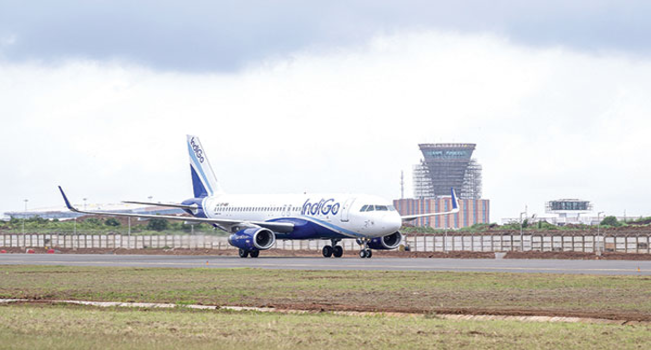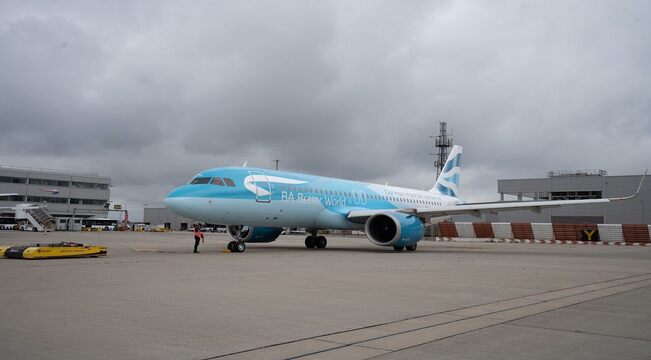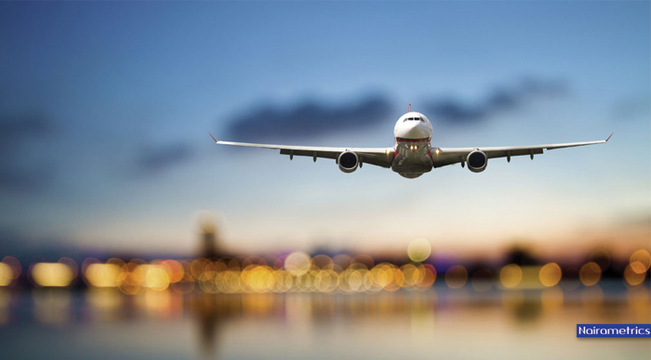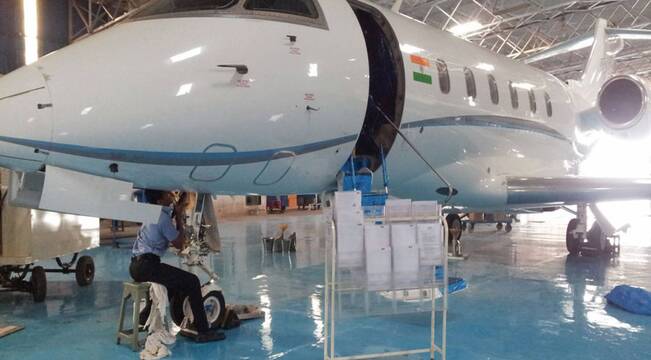New Delhi, September 18, 2021: British Airways announced Wednesday that it had flown its first-ever passenger flight to be powered directly by sustainable aviation fuel (SAF).
Remaining emissions for Tuesday’s British Airways Flight 1476 flight from London Heathrow Airport to Glasgow Airport were produced by flight offset, the airline said.
“The airline teamed up with Heathrow, air traffic service provider NATS, fuel giant BP, Glasgow Airport and Airbus to operate the short carbon-neutral flight, which departed Heathrow at 10:36 on Tuesday [September 14,] 2021 and arrived in Glasgow at 11:28 local time,” British Airways said.
The aircraft’s special livery was painted in partnership with Airbus.
The first carbon-neutral flight replicated a journey to Edinburgh made 11 years ago and British Airways noted that in 2010 “neither offsetting nor sustainable aviation fuel were available to reduce the flight’s impact on the environment.”
In addition, the previous flight was operated on an older aircraft carrying fewer passengers.
This year’s “Perfect Flight” was flown to show “how far the aviation industry has progressed in its efforts to decarbonize over the last decade,” according to British Airways.
The new flight included lighter seats, catering trollies, and replaced flight manuals and in-flight magazines with all-digital downloads, in an effort to reduce the weight of the aircraft.
An Airbus A320neo – which the company says burns 20% less fuel, 20% less carbon dioxide and is 50% quieter compared to its predecessor from 2010 – was used for the flight.
The sustainable aviation fuel, provided by BP, was blended at 35% with traditional jet fuel.
BP’s SAF is comprised of sustainable feedstocks like recycled cooking oil and household waste and produces up to 80% fewer lifecycle carbon emissions than traditional jet fuel.
The aircraft was pushed back using one of British Airlines’ electric Mototok vehicles, powered by Heathrow’s 100% renewable energy.
Only one of the A320neo’s engines was used to taxi to the runway and air traffic controllers at NATS directed the aircraft on its continuous climb and descent, allowing the jet to avoid leveling off, which causes an increase in fuel burn, the airline said.
The Perfect Flight’s climb speeds were set up in advance and the flight was able to land without airborne holding.
Upon landing in Glasgow, the A320neo’s second engined was switched off as it taxied.
“This year’s flight achieved a 62% CO2 emissions reduction compared with the flight in 2010 – 34% from more efficient aircraft and operations, 28% from the use of sustainable aviation fuel with the remaining 38% offset using high quality, verified carbon offsets,” British Airways said.
“This flight offered a practical demonstration of the progress we’re making in our carbon reduction journey,” British Airways CEO Sean Doyle said in a statement. “By working together with our industry partners we’ve delivered a 62% improvement in emissions reductions compared to a decade ago. This marks real progress in our efforts to decarbonize and shows our determination to continue innovating, working with governments and industry and accelerating the adoption of new low carbon solutions to get us closer still to the Perfect Flight of the future.”
Earlier this month, the airline launched its BA Better World sustainability program and its parent company, International Airlines Group, recently committed to operating 10% of its flights using SAF by 2030 according to the reports published in finance.yahoo.com.
British Airways has committed to achieving net-zero carbon emissions by 2050 by investing in new aircraft, developing sustainable aviation fuel and hydrogen-powered aircraft and studying carbon capture technology.




































